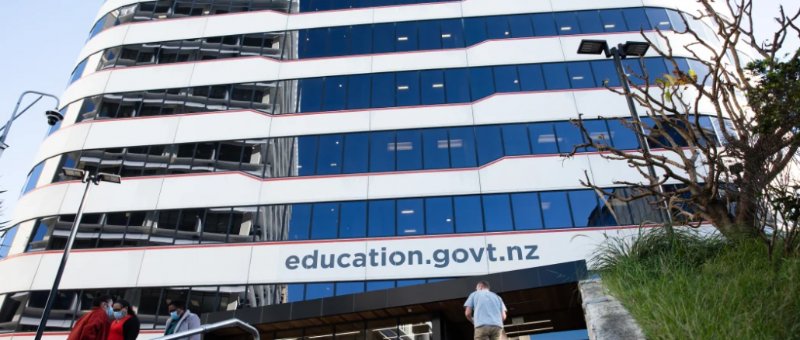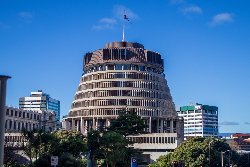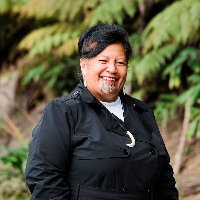Parliament: Questions and Answers - October 30
ORAL QUESTIONS
QUESTIONS TO MINISTERS
Question No. 1—Prime Minister
1. Hon SIMON BRIDGES (Leader of the Opposition) to the Prime Minister: Does she stand by all her Government's statements and actions?
Rt Hon WINSTON PETERS (Deputy Prime Minister) on behalf of the Prime Minister: On behalf of the Prime Minister, yes.
Hon Simon Bridges: Why was Karel Sroubek granted residency?
Rt Hon WINSTON PETERS: The person in question was granted residency after the Minister of Immigration, in a very difficult case, personally made a judgment; didn't leave it, like in the past, to the officials; and ensured that there were caveats on its continuance.
Hon Simon Bridges: What was difficult about it?
Rt Hon WINSTON PETERS: Well, what was difficult about it was facing up to his responsibility, for a start, which is new, because the last Government overturned 108 deportation orders, and the Minister at the time, after 2014, gave those decisions to the officials and ducked his personal responsibility.
Hon Simon Bridges: How many kickboxing fraudster drug dealers were there in those 108 that the Prime Minister referred to?
Rt Hon WINSTON PETERS: Of the 108, there were the following types of people: serial sex offenders, a woman who killed her husband, a man who killed a grandfather in a road rage attack, and several rapists. The former immigration Minister Michael Woodhouse, according to this report, handed over most decisions on deportations involving criminal behaviour to officials in 2014.
Hon Simon Bridges: What verification of Sroubek's claim to stay in New Zealand was made by the Government before Iain Lees-Galloway granted residency?
Rt Hon WINSTON PETERS: Mr Iain Lees-Galloway should've been a lawyer, because he put certain caveats on the verification process, and his decision only kicks in if that verification is satisfied, unlike the previous Government, that overturned 108 deportation orders and refused to take ministerial responsibility.
Hon Simon Bridges: Wasn't significant independent verification needed given that New Zealand's judicial bodies—the Parole Board, the Court of Appeal—did not believe Sroubek and said he was untruthful?
Rt Hon WINSTON PETERS: I want to thank the member for being finally on to it. That's precisely the ground that the Minister of Immigration covered, and there is a caveat also on that verification; until it is satisfied then his decision will not take effect.
Hon Simon Bridges: Why is the Government ignoring the Czech Republic's request for extradition?
Rt Hon WINSTON PETERS: I have to tell the member that some matters internationally have to remain private in the interests of the safety of others. And anyone who's been involved in international affairs would know that responsibility, and the Czech situation is precisely one of those.
Hon Simon Bridges: Why on earth should Sroubek remain in New Zealand rather than going to the Czech Republic—a First World EU nation with the European Court of Justice at its head?
Rt Hon WINSTON PETERS: I'd like to answer the member, but, because of the privacy provisions which were at the centre of the Minister's decision, I cannot. Now, let me say that there have been countless cases such as that, like the 108 that National left to officials in the main, and not one of them was explained.
Hon Simon Bridges: Why is the Government giving residency to an international criminal over hardworking, law-abiding people who want to make New Zealand their home?
Rt Hon WINSTON PETERS: The answer to that question, of course, is that the very people he seeks to use as his whiter than pale example were in this country seeking that very decision from him as a Minister of Cabinet, and he did not make it. Now, can I just say this: look, in 2012, this is what happened: someone convicted twice for sex offending, including while on bail, would not be deported even though he did not complete any rehabilitation programme or offence-related courses in prison. That's the kind of standard that his Government set.
Hon Simon Bridges: Does the Prime Minister's comment to "read between the lines" on Sroubek really mean that, under her Government, New Zealand's gone entirely soft on international criminals?
Rt Hon WINSTON PETERS: That's an amazing, though typical, allegation. The reality is, this is a Government that, to ensure that our streets are safe and our country is safe, is getting 1,800 more frontline police, and 400 more in back up of the office—a record in this country. And as for the allegation of being soft on crime—if you've got no frontline police, then that's what happened under the previous administration, not ours.
• Question No.
2—Finance
•
2. Dr DUNCAN WEBB
(Labour—Christchurch Central) to the
Minister of Finance: What progress, if any,
is the Government making on implementing its fiscal
strategy?
Hon GRANT ROBERTSON (Minister of Finance): The Government is making excellent progress, as demonstrated by us delivering on all of our Budget responsibility rules in our first Budget and across the forecast period. We're taking a prudent approach to managing debt to ensure New Zealand is able to respond to any potential shocks, and we are maintaining expenditure around its historical average as a percentage of GDP. And we are delivering surpluses that are truly sustainable by continuing to make the necessary investments in health, housing, education, and infrastructure. This is what responsible fiscal management looks like.
Dr Duncan Webb: Why is it important to maintain sustainable operating surpluses?
Hon GRANT ROBERTSON: The operating surplus that we have already delivered and will continue to deliver allows us to pay down debt and make much-needed capital investments in things like hospitals, schools, and transport infrastructure. As noted at Budget 2018, across the forecast period, we will actually be investing $25 billion more overall than the previous Government had planned. Treasury's latest forecast shows rising operating balance before gains and losses surpluses over the forecast period while we continue to make significant investments in our public services. This shows that we are living within our means while also allowing ourselves the ability to respond to any unexpected events that may occur.
Dr Duncan Webb: What alternative proposals has he seen for managing the Government's books?
Hon GRANT ROBERTSON: I have seen analysis from a group of commentators who have suggested that the Government should cut significant amounts of revenue—for example, through tax cuts that would disproportionately benefit the wealthiest New Zealanders—while at the same time suggesting that we should spend significantly more. This confused combination would, of course, lead to much higher debt or, if you will, a fiscal hole. On this side of the House, we're very clear about our fiscal stance. Unfortunately, the same can't be said for the National Party.
• Question No. 3—Prime
Minister
•
3. Hon SIMON BRIDGES (Leader
of the Opposition) to the Prime
Minister: Does she stand by all her Government's
statements and actions?
Rt Hon WINSTON PETERS (Deputy Prime Minister) on behalf of the Prime Minister: For the second time today on behalf of the Prime Minister, yes.
Hon Simon Bridges: When exactly did she decide that there would be no more regional fuel taxes while she is Prime Minister?
Rt Hon WINSTON PETERS: First of all, the Prime Minister was instrumental in ensuring that there was a regional tax in Auckland and that it was confined to that in law all the way to 2021. Then she decided that she would make sure that the misinformation campaign, or fake news, did not succeed by putting her personal reputation behind it. I can say, personally myself, that there will be no more petrol rises on my watch, as well.
Hon Simon Bridges: I raise a point of order, Mr Speaker. I asked when exactly the Prime Minister decided.
SPEAKER: That's right. That's what the member asked.
Rt Hon WINSTON PETERS: Can I say, on behalf of the Prime Minister, that her Deputy Prime Minister has not been apprised of the exact chronological thinking order, so I can't possibly answer that question. But if the member was concerned about that difficulty, why didn't he put it down in his primary question?
Hon Simon Bridges: Did she make the decision on the hoof in the House last week?
Rt Hon WINSTON PETERS: There are a lot of things that one could say, but the last thing anyone would describe about the Prime Minister is to do things on the hoof.
Hon Simon Bridges: If she didn't make the decision on the hoof, on the fly, why did the Minister of Transport, Phil Twyford, say on Thursday last week that he knew about it "Earlier yesterday,"—that is, Wednesday—"the prime minister gave me a call and asked me what I thought about the idea of ruling out future regional fuel taxes. We had a conversation about it and agreed … it would be better to just rule out future regional fuel taxes."?
Rt Hon WINSTON PETERS: So the member did know when the conversation happened? He began by saying he didn't. So he did know about the timing. Now, let me say this: between 2021 and beyond, there will be an election, so the relevant matter is that the Government has made a statement pertinent to this term of Government, and that's what really matters.
Hon Simon Bridges: If she didn't make the decision on the fly, why did Associate Minister of Transport Shane Jones say that he only found out about it "When the Prime Minister stood up."?
Rt Hon WINSTON PETERS: The reality of it all is that not everyone in the coalition membership knew about this decision. Now, can I just say, why this has become a mountain from a molehill I don't know, because the law is clear as daylight. There will be no changes until 2021, and so any promises made beyond this election are for the next election campaign.
Hon Simon Bridges: Why, when asked by Ryan Bridge on The AM Show last Friday "It's important we get the time line right because if a Prime Minister is going to make a unilateral decision like that, we should know about it probably as soon as it happens.", did Parliamentary Under-Secretary Michael Wood answer "You pretty much did. It was made on the day it was announced in question time. That's not news."?
Rt Hon WINSTON PETERS: He's right.
Hon Simon Bridges: Can we confirm, then, that the decision was made last Wednesday?
Rt Hon WINSTON PETERS: The member Mr Bridges, in setting out his question, gave the time line himself, so it begs the question: what on earth am I doing here now, dealing with this triviality?
Hon Simon Bridges: Why did the Rt Hon Winston Peters say Mr Wood was right to say it occurred and the decision was made on Wednesday, and then also say that that wasn't so?
SPEAKER: Order! Order! I think I'm going to give the member another chance to phrase that question.
Hon Simon Bridges: Why did the Prime Minister just say that Michael Wood was right to say it happened on Wednesday—the decision for no new regional fuel taxes made—and then say he wasn't?
Rt Hon WINSTON PETERS: Well, first of all, words matter in this game. Mr Wood said that it wasn't news and it wasn't, and it's not now.
Hon Simon Bridges: When Michael Wood said last week "It was made on the day it was announced in question time.", was he right or wrong?
Rt Hon WINSTON PETERS: What Mr Wood said in response to a question was that whatever the timing was, it wasn't news.
Hon Members: That's not what he said.
Rt Hon WINSTON PETERS: That's what he said. Go and read the transcript, and in Gerry's case, I'll send it in a note over with a—
SPEAKER: Order! Order!
Rt Hon WINSTON PETERS: Well—
SPEAKER: He's an honourable member, or he's Mr Brownlee.
Rt Hon WINSTON PETERS: Well, the honourable Mr Brownlee—I'll send it over on a note written by a crown, if he likes, and maybe pictures. But the reality is that what we have here is a firm Government policy on not extending the regional tax outside of Auckland before the next election, and that's all the New Zealanders want to know.
Hon Simon Bridges: Which Cabinet committee did she discuss not implementing new fuel taxes, and why can none of her Ministers remember that discussion, including Shane Jones, who told media last week that he cannot remember it being brought up?
Rt Hon WINSTON PETERS: I've got to say that politics is about the here and now, and we're dealing with 2018, 2019, and 2020, after which time there'll be an election. In the meantime, that which was a decision made by the full Cabinet to not extend regional fuel taxes beyond Auckland stands, and it's all the New Zealand taxpayers want to know.
Hon Simon Bridges: Does the Prime Minister have any idea when the decision for no new regional fuel taxes was made by the Prime Minister?
Rt Hon WINSTON PETERS: Can I just say that she was appraised by her helpful Cabinet colleagues of the import of the legislation, and the second thing is that by the look of her polling, she's better appraised of things than someone else I know.
• Question No.
4—Immigration
•
4. Hon MICHAEL
WOODHOUSE (National) to the Minister of
Immigration: Does he stand by all his statements
and actions in relation to Karel Sroubek?
Hon IAIN LEES-GALLOWAY (Minister of Immigration): Over the last few days, I've taken the opportunity to reflect on the decision that I made and to consider the information that was available to me at the time of making that decision. Having done that, I absolutely stand by the action that I took. I also stand by the following statement: "I can understand why people want more information. However, I must maintain the long-held convention that Ministers do not divulge the reasons for reaching their decision in order to maintain the integrity of the process."
Hon Michael Woodhouse: What specific regulation, convention, or law is stopping him from revealing the reason the immigration Minister decided Karel Sroubek should not be deported?
Hon IAIN LEES-GALLOWAY: It is a long-held convention that several Ministers of Immigration have adhered to not to divulge the reasons for their decision in order to maintain the integrity of the process.
Hon Michael Woodhouse: Well, does he agree with the member for Palmerston North when he said, "That's the problem with the use of ministerial discretion: it's not transparent."?
Hon IAIN LEES-GALLOWAY: It certainly can be a problem from a public perception point of view, but the truth is that in order to maintain the integrity of this process, it is incumbent on Ministers not to divulge the reasons for reaching their decision.
Hon Michael Woodhouse: Well, does he agree with the member for Palmerston North, who also said, "Yes, and I intend to hold myself to the standards we have demanded in Opposition."?
Hon IAIN LEES-GALLOWAY: Yes.
Hon Michael Woodhouse: Was the Minister privy to all of the information before the Parole Board before its decision not to grant Karel Sroubek parole?
Hon IAIN LEES-GALLOWAY: I was privy to all the information that was provided to me in exactly the fashion that the member would be aware of from when he was Minister. I believe that I had sufficient information to make a decision.
Hon Michael Woodhouse: Does he believe the right of a recidivist, unrepentant, drug-dealing gangster is greater than the right of the public to be kept safe and know why he made that decision?
Hon IAIN LEES-GALLOWAY: It's absolutely true that I had to weigh up matters of public safety and the criminal behaviour of the individual involved. I weighed up all of those matters. I believe that it is important for Ministers, when taking these serious decisions, to weigh up all of the evidence.
• Question No. 5—Housing and Urban
Development
•
5. PRIYANCA RADHAKRISHNAN
(Labour) to the Minister of Housing and
Urban Development: What progress, if any, has been
made towards the Government's KiwiBuild homes
targets?
Hon PHIL TWYFORD (Minister of Housing and Urban Development): Thank you, Mr Speaker. On Saturday, the first 18 KiwiBuild families were welcomed to their new homes by the Prime Minister. KiwiBuild is giving thousands of young families who have been locked out of homeownership a chance to buy their own affordable starter home. There is still a lot of work to do to build our way out of the national housing crisis, but Saturday showed that we are making progress.
Priyanca Radhakrishnan: What reports has he seen on the welcoming of the first KiwiBuild families?
Hon Phil Twyford: The first KiwiBuild families come from diverse backgrounds, but one of the things they have in common is that they are young families looking to get a place of their own and struggling to find affordable-price homes in a city where the housing crisis is most acute. As the first KiwiBuild family said on Saturday, they had given up on buying their own home before KiwiBuild arrived, because housing is just so expensive. I'm proud that this Government is giving these families and thousands more like them hope.
Priyanca Radhakrishnan: Why is the Government building KiwiBuild homes?
Hon PHIL TWYFORD: Because a generation of young New Zealanders with good jobs are priced out of homeownership. The families at McLennan represent many areas of the workforce—nurses, warehouse workers, concrete workers, medical students, administration workers, engineers, designers, and stay-at-home mums. KiwiBuild aims to increase homeownership, to increase the number of homes being built at an affordable price point, and to use Government procurement to drive down costs. Only 5 percent of new builds are in the affordable lower quartile, which means that there are fewer and fewer modest starter homes for young families.
Priyanca Radhakrishnan: Why has the Government set the eligibility criteria that it has for KiwiBuild homes?
Hon PHIL TWYFORD: Well, KiwiBuild is about restoring the dream of homeownership to young families, and it's a sign of just how bad the national housing crisis has got that for young families in places like Auckland, couples with good jobs, like two teachers with five years' experience earning $160,000 a year pre-tax, are locked out of homeownership. In fact, since 2007, the greatest fall in homeownership has been for families earning between 80,000 and 180,000.
Hon James Shaw: Does he think it's appropriate for KiwiBuild families to be targeted for online bullying by members of Parliament?
SPEAKER: Order! Order! No, other than the use of the word KiwiBuild, there's no relationship with this Minister, and, if there are serious allegations to be made like that, they shouldn't be made as a casual question.
• Question No. 6—Housing and
Urban Development
•
6. Hon JUDITH
COLLINS (National—Papakura) to the
Minister of Housing and Urban Development:
Does he stand by the following statements in regards to
KiwiBuild, "Our objective is to deliver quality,
well-located homes that are inherently affordable", and "it
is not a programme aimed at low-income families, because
they may not be able to service a KiwiBuild
mortgage"?
Hon Damien O'Connor: When have you ever cared?
Hon PHIL TWYFORD (Minister of Housing and Urban Development): Yes. KiwiBuild has always been—
SPEAKER: Order! Order! Sorry, I'm going to interrupt the member. I'm going to ask Damien O'Connor just to—[Interruption] Thank you. Start again, please.
Hon PHIL TWYFORD: Yes, KiwiBuild has always been a homeownership programme. We are building quality, well-located homes that are more affordable by virtue of good design or efficient land use for first-home buyers to buy their first home. Only 5 percent of new builds are in the lower quartile, which means there are very few modest starter homes for young families. KiwiBuild changes this. KiwiBuild homes are not subsidised and this means that families will need sufficient household income to sustain a mortgage.
Hon Judith Collins: What income segment of families is KiwiBuild aimed at?
Hon PHIL TWYFORD: KiwiBuild is aimed at the income segment of the squeezed middle who have suffered for nine years. If you look at the income demographics, the bands between household income of $80,000 to $180,000 have experienced the biggest drop in homeownership in the last decade—more than low-income families and more than high-income families. What's more, that income demographic contains half of all families with children.
Hon Judith Collins: When he has said that the KiwiBuild homes are inherently affordable, are they being sold at market rates?
Hon PHIL TWYFORD: What I've always said is that KiwiBuild homes are not being subsidised. We choose to build in the lower quartile—something that that Government refused to do for nine years. They even refused to acknowledge that there was a housing crisis. We are building lower-quartile affordable homes that young Kiwi first-home buyers can actually afford to buy. They are not subsidised and in the process we are changing the market.
Hon Judith Collins: I raise a point of order, Mr Speaker. The question was: are they being sold at market rates? We did not get anywhere near that answer.
SPEAKER: I think the Minister can—I mean, there was a long answer that got fairly close to addressing it, but I'm sure he can be more—
Hon Chris Hipkins: Point of order, Mr Speaker.
SPEAKER: No, I've made a decision, Mr Hipkins. You're not going to argue with it.
Hon Chris Hipkins: How is the lower quartile not part of the market rate?
SPEAKER: It does depend on the type of house. I'm sure that the Minister is capable of a succinct, direct answer.
Hon PHIL TWYFORD: We are building KiwiBuild homes so they are being sold at the market rate. They are in the lower-quartile affordable segment of the market.
Rt Hon Winston Peters: Regarding the earnings of KiwiBuild applicants, can the Minister confirm whether or not one of the young couples who recently bought one of the KiwiBuild homes could, in fact, afford to visit 204 countries, which is some arcane measurement from a member of Parliament?
SPEAKER: Order! Order! Again, that is not an area that this Minister has responsibility for.
Rt Hon Winston Peters: I raise a point of order, Mr Speaker. The point that was being made—and it's the subject of the political debate—is that there is an affordability capacity in the applications and that a certain type of person can afford to buy at that quartile level. My point is: is this person who was an applicant successfully being utterly misdescribed or are the rules being ignored by the officials? One of those things has to have happened and that's why I'm asking that question.
SPEAKER: If the member had been very direct in asking about the criteria and whether that sort of criteria applied to applications, which would be the Minister's responsibility, then I would have let the question go, but the member didn't.
Rt Hon Winston Peters: When applicants come before the process of qualifying for KiwiBuild, are all their earnings and income and past looked at in terms of whether or not they are properly declaring their level of wealth?
Hon PHIL TWYFORD: We set an income cap for KiwiBuild, but we did not set a policy that said that if you've travelled and done your OE, then you should be permanently banned from buying a KiwiBuild house. It seems that some members of this House were confused about a romantic message on the personal Instagram page of a young couple—a couple of young New Zealanders who committed the crime of buying—
SPEAKER: Order! Order! The Minister has no responsibility for that.
Paul Eagle: What responses has he seen to the new KiwiBuild families?
Hon PHIL TWYFORD: We've seen some fantastic responses. We've seen commentators who have declared that KiwiBuild is going to have the effect of stabilising the housing market and making housing more affordable for first-home buyers across the market. We've seen families—18 families—who were thrilled on Saturday that they had successfully navigated the ballot and had the opportunity to buy their first homes, because they have been locked out of the market by a housing crisis that was allowed to spin out of control over the last nine years.
Paul Eagle: How is the Government assisting families who cannot afford homeownership currently?
Hon PHIL TWYFORD: There's more good news from the Government: there are more than 1,200 more public housing tenancies than there were a year ago. Budget 2018 funded 6,400 more public homes over the next four years, and Housing New Zealand is currently investing $4 billion in a massive build programme to increase State housing and make the existing State houses warm and dry. Our Government is reforming and modernising the tenancy laws, discouraging housing speculation, and putting more resource than ever before into tackling homelessness.
Hon James Shaw: As the Minister responsible for KiwiBuild, will he speak to his colleague the Minister of Justice about whether KiwiBuild families should be protected under the Harmful Digital Communications Act from the actions of Opposition MPs?
Hon PHIL TWYFORD: Well, I think that's an excellent decision, because I think almost everybody in this House believes that cyberbullying, particularly of private citizens, has no place in—
SPEAKER: Order!
Hon Judith Collins: What has happened to change his mind so that, instead of waiting five years to be able to sell a KiwiBuild house, the owners can now sell after only three years?
Hon PHIL TWYFORD: We listened to expert opinion. We weighed up all of the competing factors and tried to settle on the best and most wise policy that we could.
Hon Judith Collins: What steps has he taken to securitise against the certificates of title, any deed requiring a payment of capital gain in the event that the house is sold within three years?
Hon PHIL TWYFORD: That's not part of our policy, but we have got provisions in place under KiwiBuild to ensure that people understand that they are required to live in that house, not to sell it within three years. If they do choose to sell it within three years, they have to have a conversation with KiwiBuild and there'll be a case-by-case decision made on whether it's justifiable for them to sell within those three years. That's a practical and perfectly reasonable response to that situation.
Hon Grant Robertson: Was it the Minister's expectation that the first families who would move into KiwiBuild homes would be the subject of a disgraceful cyberbullying campaign, and would he expect anyone who did that to apologise?
Hon PHIL TWYFORD: Yes, I would. This young couple did nothing more than take advantage of—
SPEAKER: Order! The member will resume his seat. The first part of the question was the Minister's responsibility; the second part wasn't. He can answer the first part only. Don't start answering the second again.
Hon PHIL TWYFORD: I never expected that the first KiwiBuild homebuyers would be the subject of a disgraceful online bullying—
SPEAKER: Order! The member's answered the question.
Rt Hon Winston Peters: I seek to table the UN list of countries and associated countries, which tells the world that there aren't 204 countries on this planet.
SPEAKER: I'm going to ask the member: is it a publicly available document?
Rt Hon Winston Peters: Well, apparently not. We've got a member of Parliament who thinks there are 204 countries.
SPEAKER: I'm not going to put it. I'm working on the basis, from the lack of direct reply, that it is publicly available.
• Question No.
7—Finance
•
7. Hon PAUL GOLDSMITH
(National) to the Minister of
Finance: In dollar terms and as a percentage, how
much more tax, including levies, does he expect to collect
in the 2020 financial year, as compared with the 2018
financial year?
Hon GRANT ROBERTSON (Minister of Finance): Core Crown tax revenue as a percentage of GDP is forecast to remain stable at around 27.5 percent, similar to the levels recorded by the previous Government in its final term. In dollar terms, total taxation revenue for the year to 30 June 2018 was $79.596 billion. In 2020, the latest forecasts show this to be $88.187 billion—a difference of $8.591 billion, or 10.8 percent. Including ACC, fire, and Earthquake Commission levies between 2018 and 2020, the answer is $9.323 billion, or 11.2 percent. These forecasts do not include tax or levy changes since the published forecasts. These will be incorporated into the Half Year Economic and Fiscal Update.
Hon Paul Goldsmith: Is he sure that he needs every single extra dollar of that $8.5 billion?
Hon GRANT ROBERTSON: I'm confident that we will be investing that money very, very wisely indeed.
Hon Paul Goldsmith: Does he expect that New Zealand wage earners' incomes will rise as quickly as his tax revenues, particularly for those in the squeezed middle?
Hon GRANT ROBERTSON: I can't speculate on that at the moment, but I presume that between 2015 and 2017, when total taxation revenue increased by 13.5 percent, the previous Government had the same thought process.
Hon Paul Goldsmith: When he says in relation to a potential capital gains tax that one of the options is that it be revenue neutral, isn't it true that he's more likely to go with the other option, which is that it will be an additional tax?
Hon GRANT ROBERTSON: As the member well knows, those decisions are yet to be made, and I would not rate his ability to read my mind.
• Question No. 8—Energy and
Resources
•
8. Dr DEBORAH RUSSELL
(Labour—New Lynn) to the Minister of
Energy and Resources: What recent action has the
Government taken to promote alternative energy
sources?
Hon Dr MEGAN WOODS (Minister of Energy and Resources): Last week, I signed a memorandum of cooperation with Japan's economy, trade, and industry Minister on the development of hydrogen technology. The memorandum, which is the first of its kind with Japan in the world, signalled New Zealand's interests in working with Japan on developing hydrogen. This Government sees great potential in alternative energy sources such as hydrogen, in particular green hydrogen generation from renewable energy, as we transition away from a reliance on fossil fuels and towards a low-emissions renewable future.
Dr Deborah Russell: What developments have been made in New Zealand to advance the production and use of hydrogen?
Hon Dr MEGAN WOODS: Last week, Tararaki-based Hiringa Energy signed and memorandum of understanding (MOU) with major freight company TIL Logistics Group to develop hydrogen fuel cell technology transport solutions. This is an exciting development and follows the commencement of a project in Taupō between the Tuarōpaki Trust and the Japanese company Obayashi Corporation to pilot the commercial production of hydrogen using renewable geothermal energy.
Dr Deborah Russell: What is the role that green hydrogen could play in our energy system?
Hon Dr MEGAN WOODS: Green hydrogen could play an important role in New Zealand's security of supply and energy future by supporting electricity generation during dry weather. Obviously, it also has transport applications, for instance, by enabling the conversion of New Zealand's heavy vehicle fleet away from fossil fuel reliance, and there are also potential uses in shipping in rail. Focusing on green hydrogen is important because it's made using renewable energy, and, in the future, could demand a premium or have a lower cost to generate. That's why this Government is taking the opportunity seriously.
Rt Hon Winston Peters: Can I ask the Minister whether she is aware of the recent decision by the Government for the continuation of electrification in KiwiRail and not the diesel replacements, which was a decision by the previous Government?
Hon Dr MEGAN WOODS: Yes, I certainly am aware of that excellent decision by this Government. This is a Government that is committed to the decarbonisation of our transport system and that is an important step in it. I also point the member to my answer that indicated that hydrogen could also be part of that future.
• Question No.
9—ACC
•
9. Hon TIM MACINDOE
(National—Hamilton West) to the Minister
for ACC: Does he stand by all of his answers to
Oral Questions on 24 and 25 October, including his answer
that he will "neither rule in or out any proposed increases
to ACC levies"?
Hon IAIN LEES-GALLOWAY (Minister for ACC): Yes, including the clarification that I made on 25 October.
Hon Tim Macindoe: Why did the Minister claim that ACC needs to increase motor vehicle levies, further raising petrol taxes, when the 2017 annual report, upon which levy adjustments were proposed in the consultation process, confirms that revenue from that source was above 110 percent, and a further result above 110 percent is revealed in the 2018 annual report, while ACC's funding position target in both of those reports is only 105 percent?
Hon IAIN LEES-GALLOWAY: Because, contrary to what the member just said, it's not that the revenue is 110 percent; it's that the assets are 110 percent of the total liabilities. That asset-to-liability ratio actually maxed out at 115.7 percent under the previous Government. It has been dropping since then, and in order to maintain a steady progress towards 105 percent—the mid-point of the 100 to 110 percent—we have to make sure that levies are set at an appropriate level. That decision is, ultimately, of course, a decision for Cabinet. Cabinet is yet to make that decision.
Hon Tim Macindoe: If, as the Minister said last week, ACC's accounts need to be brought back to being more sensibly funded and that Cabinet will take that into account when it makes a decision about future ACC levies, isn't this proposal, which would see a further increase in petrol tax, when New Zealanders are already feeling considerable pain at the pump, a long way from being "very convincing"?
Hon IAIN LEES-GALLOWAY: The member makes a good point that, ultimately, I and Cabinet have to be convinced by the case that ACC makes. ACC is yet to make that case. But I would also point out—this is important for the member to know if he wishes to be an effective Opposition spokesperson—that the funding policy that ACC is legislated to work under requires it to give effect to the target band of 100 to 110 percent, and that if the asset-to-liability ratio is outside of that target band, it must set levies at a rate that will allow it to achieve that band over a 10-year horizon. That is the funding policy statement that was put in place by the Hon Nikki Kaye.
Hon Tim Macindoe: So, in light of that answer, will he now rule out a 12.1 percent increase in motor vehicle levies and commensurate increase in petrol tax, given that ACC has reported results well above its own funding position target for the motor vehicle account in each of the last three financial years?
Hon IAIN LEES-GALLOWAY: I reiterate that although I have said that ACC will need to make a very convincing case, they have only just completed their consultation. They have yet to make a recommendation to me, and I am yet to make a recommendation to Cabinet. What I will do is take into account not only the rate at which ACC can return its accounts to the appropriate level of funding but also matters such as the cost of living and costs that are faced by middle-income New Zealanders. That is the decision that Cabinet will make.
• Question No. 10—Energy and
Resources
•
10. JONATHAN YOUNG
(National—New Plymouth) to the Minister
of Energy and Resources: Does she stand by all her
Government's policies, statements, and actions in relation
to the Energy and Resources portfolio?
Hon Dr MEGAN WOODS (Minister of Energy and Resources): Yes.
Jonathan Young: Considering a transition to a hydrogen-based energy system would take several decades, according to local experts—
SPEAKER: Order! I'm going to get the member to start with a question word.
Jonathan Young: Does the Minister consider that, despite a transition to a hydrogen-based energy system taking several decades, the current price rises in electricity of 400 to 500 percent due to gas shortages should require her to ensure that gas supply in New Zealand is consistent and strong?
Hon Dr MEGAN WOODS: I think that question demonstrated just how confused that member is about the future of the energy system in New Zealand. I want to address one part of that. Hydrogen will not take several decades to develop. It is operational in other parts of the world now. In fact, Tokyo is intent on making the Tokyo Olympics in 2020 the hydrogen Olympics. In terms of the cost of production, I point that member to the fact that, actually, renewables are the cheapest form of electricity that we produce in this country, and if we want to lower electricity costs for New Zealand consumers, we need to do what this Government is doing and that is produce more renewable electricity.
Jonathan Young: So what research does the Minister have to back up her statement that the offshore exploration ban will in fact reduce greenhouse gases?
Hon Dr MEGAN WOODS: There is common knowledge around the development of the Chinese emissions trading scheme (ETS). I encourage that member to look at the International Energy Agency's report on the Chinese ETS. The International Energy Agency were involved in the development of the Chinese ETS. So when that member trots out last century's arguments that New Zealand ceasing the use of fossil fuels will result in a transference, I ask him to just read a little.
Jonathan Young: Has the Minister read the articles from Carbon Brief, a highly reputable organisation with many awards in the UK, that states that methanol could not be manufactured from coal in China without displacing other emissions, as she has constantly said, when China's ETS doesn't cover methanol production?
Hon Dr MEGAN WOODS: What I encourage that member to look at is the continual development of the Chinese ETS. There are currently seven systems on trial in China at the moment and the International Energy Agency is involved in all of them. If that member cares to read a little, he will find out that, actually, the involvement of those industries in the Chinese ETS is imminent. In fact, there are individual cities in China that are ruling out more coal production.
• Question No. 11—Regional Economic
Development
•
11. MARK PATTERSON (NZ
First) to the Minister for Regional
Economic Development: What recent provincial growth
fund announcements has he made?
Hon SHANE JONES (Minister for Regional Economic Development): Given that these are weighty matters, my answer might be slightly longer than usual. Yesterday, a sum of $19 million was announced to meet the expansion of Light Detection and Ranging, a technology, a mapping system that will vastly improve the ability of local and central government businesses and NGOs to understand the challenges of how to respond to matters such as flood resilience and climate change impacts. I also took the first step to create 150 new jobs in Kawerau with the announcement of $2 million for the first stage of the Kawerau Pūtauaki Industrial Development.
Mark Patterson: How have our regions reacted to the latest Provincial Growth Fund announcements?
Hon SHANE JONES: Perhaps the best regional reaction could be described in the following way. Prior to my announcement in Kawerau, the local mountain otherwise known as Mount Pūtauaki was covered in fog, and the mist and the fog cleared as a consequence of the announcement, and there was a blaze of certainty and clarity.
Mark Patterson: Which regions will be next to benefit from the $3 billion Provincial Growth Fund?
Hon SHANE JONES: These are not matters of torpor or sluggishness. Prior to Christmas, Te Tai Poutini, the West Coast, Manawatū, Whanganui, and Eastern Bay of Plenty will all enjoy the presence of the first champion and citizen of the provinces with substantial announcements, with the full backing of the Jacinda - Winston Peters - led Government.
SPEAKER: I'm sure the member will get it right next time.
• Question No.
12—Workplace Relations and
Safety
•
12. Hon SCOTT SIMPSON
(National—Coromandel) to the Minister for
Workplace Relations and Safety: What progress, if
any, has he made regarding changes to the Employment
Relations Amendment Bill as reported back from the Education
and Workforce Committee?
Hon IAIN LEES-GALLOWAY (Minister for Workplace Relations and Safety): I've had very constructive discussions with my Government colleagues, and I am confident that the bill will pass with a parliamentary majority before the end of this year.
Hon Scott Simpson: Is he considering making changes to the Employment Relations Amendment Bill regarding opt-in and opt-out provisions relating to union membership?
Hon IAIN LEES-GALLOWAY: No.
Hon Scott Simpson: Does he agree with section 17 of the New Zealand Bill of Rights Act 1990, which declares that everyone has the right to freedom of association?
Hon IAIN LEES-GALLOWAY: Yes.
Hon Scott Simpson: Does he support the concept of voluntary unionism?
Hon IAIN LEES-GALLOWAY: Yes.


 Gordon Campbell: On The Public Sector Carnage, And Misogyny As Terrorism
Gordon Campbell: On The Public Sector Carnage, And Misogyny As Terrorism National Maori Authority: Maori Authority Warns Government On Fast Track Legislation
National Maori Authority: Maori Authority Warns Government On Fast Track Legislation NZ Government: Comprehensive Partnership The Goal For NZ And The Philippines
NZ Government: Comprehensive Partnership The Goal For NZ And The Philippines DoC: Canterbury Spotted Skink In Serious Trouble
DoC: Canterbury Spotted Skink In Serious Trouble Te Pāti Māori: Oranga Tamariki Cuts Commit Tamariki To State Abuse
Te Pāti Māori: Oranga Tamariki Cuts Commit Tamariki To State Abuse NZCTU: Inflation Data Shows Need For A Plan On Climate And Population
NZCTU: Inflation Data Shows Need For A Plan On Climate And Population Statistics New Zealand: Annual Inflation At 4.0 Percent
Statistics New Zealand: Annual Inflation At 4.0 Percent


